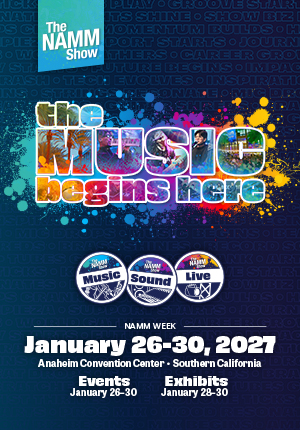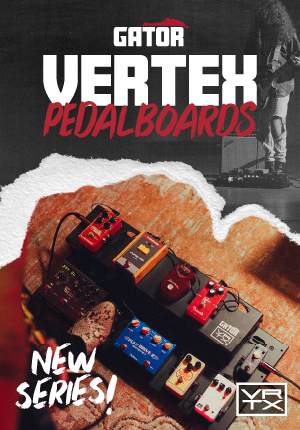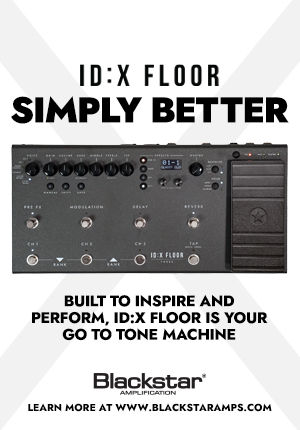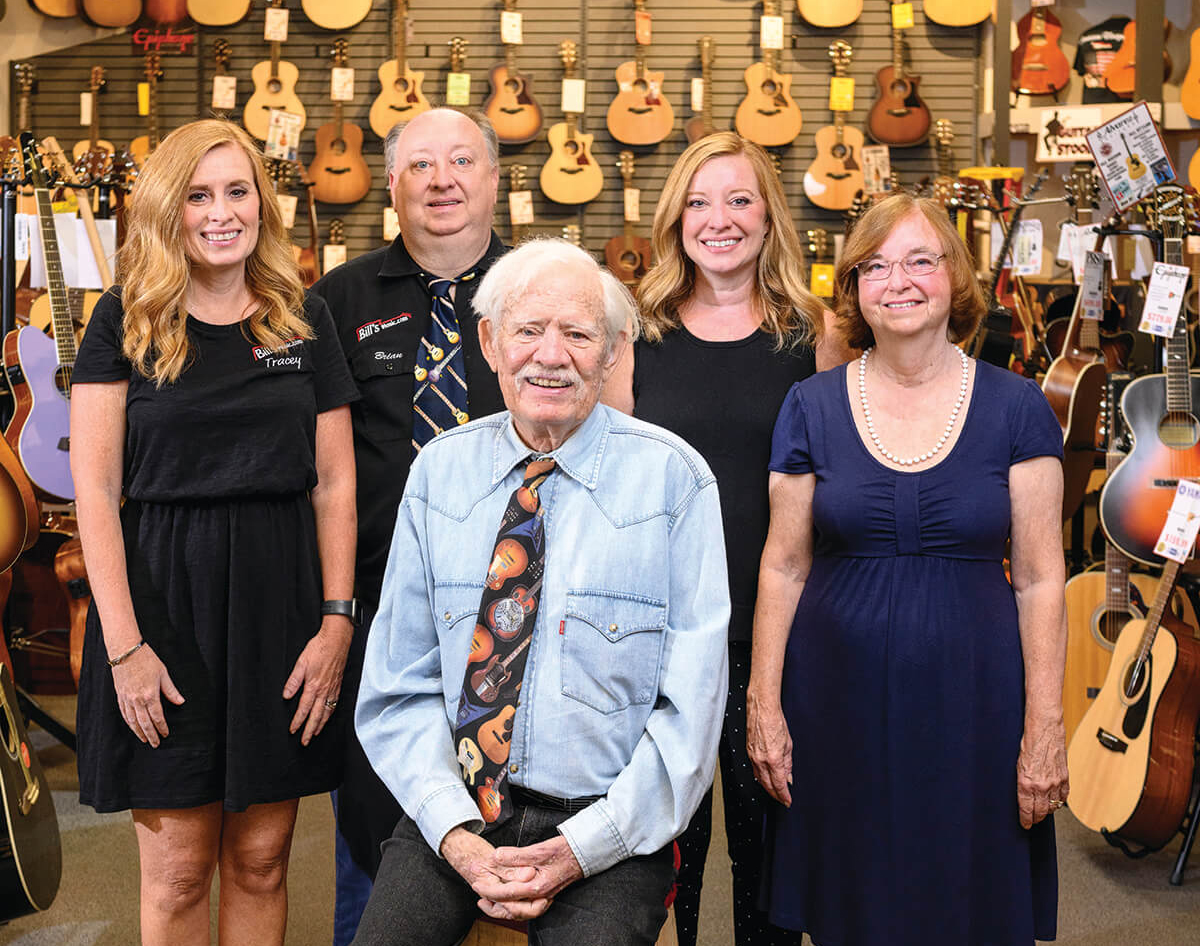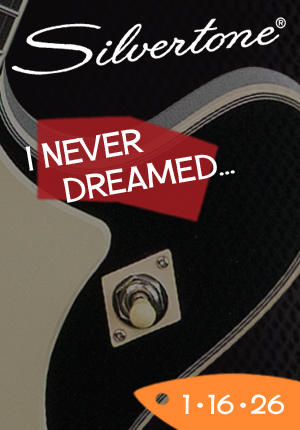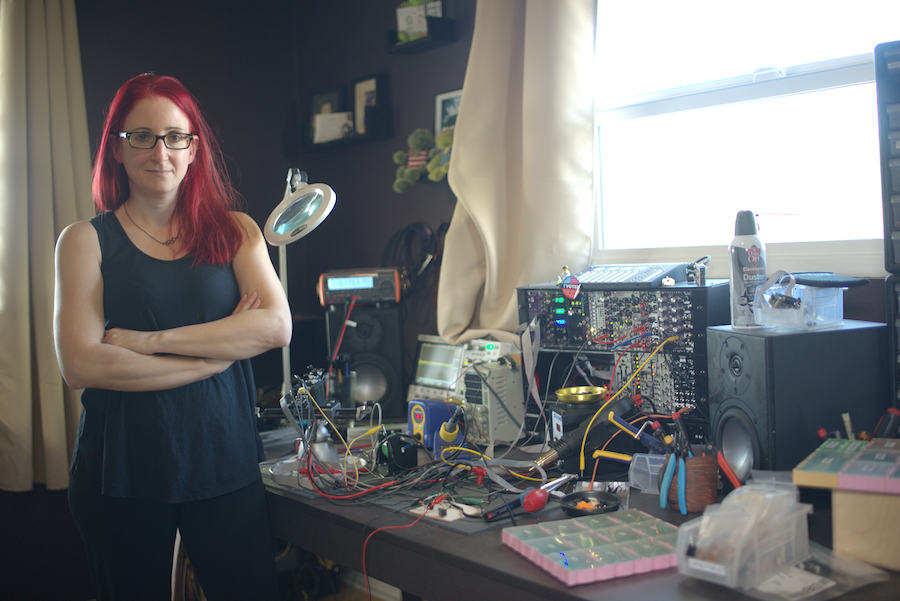
Kris Kaiser, founder of Noise Engineering
Whether it’s turning knobs, hitting keys or adjusting sliders, musicians have embraced the world of synthesis in recent years, yielding a boom in synthesizer sales. New brands have popped up across the industry, and the market now features a slew of analog, digital, hybrid and modular synths.
Patchwerks, a synthesizer-only retailer based in Seattle, attributes the rise to electronic dance music and its popularity among the millennial generation, which has brought the sound of electronics into mainstream music once again.
“EDM has inspired a lot of crossover and pop appeal, so synths aren’t just off on the sidelines anymore like they once were,” said Tom Butcher, co-owner of Patchwerks. “The same goes for hip-hop producers and lo-fi producers proliferating on SoundCloud. Synths and electronic instruments open up a world of possibility to a huge number of people, and we think the popularity of synths has to do with how people in today’s cultures choose to express themselves with technology. Additionally, with electronic musical instruments, the technology has never been more capable and more available, with innovations coming all the time from big and small players.”
Despite the first synthesizer, the Minimoog, being introduced in 1970, the category is still fairly new, and some retailers haven’t yet ventured into the world of synthesis. Nevertheless, the popularity of these products offers retailers new revenue opportunities, especially as the pandemic inspires new music makers. Reverb reported from January to September 2021, searches for keys and synths on Reverb were up 34% compared to the same period last year.
“That’s pretty impressive,” said Cyril Nigg, Reverb’s director of analytics. “More time spent at home over the past two years has meant more time to figure out new pieces of gear — especially hardware synths and samplers. I think this translated to a lot of guitar enthusiasts trying synths and, once they started, they realized the new dimensions they could add to their music.”
Patchwerks’ Butcher agreed, stating his store saw an increase in demand as COVID-19 shutdowns took hold.
“Many of our existing customers were looking to buy some products to keep them entertained during lockdown, and, in our community, we’ve seen groups of people band together and start streaming music to each other as well,” he explained. “We also saw new customers coming to Patchwerks looking to learn how to make music or make podcasts.”
While the category saw a rise during the pandemic, Reverb’s Nigg said synths selling well is a trend that’s “unlikely to go away.”
“There’s a tangible fun that synths provide through turning dials and pushing buttons that really allows musicians to flex their creativity,” he explained. “With this in mind, I’d encourage sellers to continue to reassess and expand their synth inventories.”
Stocking Synths
From modular to analog, digital to software-based, a vast array of models can make knowing where to start when looking to stock synthesizers daunting. Austin Moss — senior category manager for DJ, synths and keyboards at Sweetwater — suggests starting by stocking an approachable analog or subtractive synthesis keyboard instrument with presets.
“Keys make them familiar to musicians, but anyone curious can twist a few knobs and enjoy the paradox of a visceral and gratifying experience with no idea what is happening,” Moss said. “Everybody likes grabbing the filter cutoff knob and exploring textures and sounds. For all the fun that soundscapes can be, even experienced synthesists get lost in the sauce, so presets can get us back into familiar terrain.”
Roland’s Duane McDonald advises choosing a product selection that covers a wide range of price points and multiple sound types.
“If you’re only going to stock a few synthesizers, I would make sure that you pick models that are versatile enough to cover multiple sound genres,” McDonald said. “Keyboard players today need to be able to cover everything from lead sounds to rhythmic arpeggios to lush pad sounds. Having a few synths, at different price points, that can do that will have great appeal to customers.”
Founded in 2016, Patchworks has since established itself as the nexus for all things synthesis in Seattle. Butcher said this has helped certify his store as the synthesis destination in the Pacific Northwest.
“What has worked for us at Patchwerks is to be integrated with our synthesizer community, to support and nurture it, and to do our best meeting our customers’ needs,” he said.
Hiring synth experts who are enthusiastic about the instruments also plays a role in the success Patchwerks has seen.
“It doesn’t hurt that we love synths and are all synthesizer musicians ourselves,” Butcher said. “From our perspective, the best thing to do is to make sure your team is equipped to understand the instruments, to be earnest and knowledgeable and to be able to share the excitement and enthusiasm for synthesizers with your customers. Once you have the talent on board, make sure to develop strong relationships with your suppliers and understand how the current landscape of chip shortages affects your product portfolio. You might not be able to stock everything you want, and from there you can understand how to hedge against product unavailability with comparable products.”
Going Modular
The growing popularity of modular synths has ushered in a rise in boutique brands taking the craft of sound synthesis seriously.
“At Patchwerks, we sell a lot of Eurorack modular equipment, so we see hot modules like the Mutable Instruments Beads, the ALM Busy Circuits Pamela’s New Workout and the Make Noise Morphagene fly out the door as soon as we get them in stock,” Butcher explained.
A fairly young brand, Los Angeles-based Noise Engineering has seen a surge in modular interest just since its inception in 2014.
“We talk to a lot of customers about why they got into modular synthesis and an overwhelming number of them say that they spend so much time at the computer that they really enjoy the tactile experience of modular, of getting out of the box,” said Kris Kaiser, founder of Noise Engineering. “In addition, since it is not a fixed-architecture synth, every time you patch it, it can be a completely different instrument.”
Kaiser said it’s a great time for retailers and musicians to get into modular synthesis thanks to the explosion of brands.
“[Modular synths] all talk to each other so you can mix and match, so there are tons of choices to create a synth that is completely your own. Recently, some great options for lower-cost power supplies and cases have become available, too, so the barrier to entry is smaller than it has been in the past,” Kaiser explained, adding that retailers should remember when stocking modular synths that they are an instrument unlike any other. “Even if you know synthesis, they take some time to learn. This is [important] for both staff and customers. Effects and oscillators are the bread and butter of sales, but a modular system doesn’t work without a few other key bits, so be prepared to stock a few things that will probably be slower sellers with lower margins but will be important to help explain to customers how it all works.”
Kaiser also advised retailers to reach out to their modular manufacturers and take advantage of their knowledge.
“Modular companies are, in most cases, very small and full of gear nerds,” she said. “Often the person answering the email is the person who designed the module — or had a hand in it. We know our products inside and out. Ask us questions! We are happy to talk about sales trends and what makes sense to buy, or not buy, from us. Talking to us will also help you understand constraints we may have on filling orders, the products themselves and how to best market them.”
Marketing Synths
When it comes to promoting a store’s synthesizer selection, James Sajeva, Korg USA’s senior brand manager, recommends retailers give the instruments a dedicated space in the showroom, as they would any other instrument.
“As a synth player, having a synth section with everything ready to audition is important to capture the interest,” Sajeva said. “You want to provide someone with that immediate ‘wow’ factor of putting their hands on a synth and hearing it sing, along with the opportunity to compare different products quickly over the same monitoring system. Besides that, with the level of video content out there on various synths, a more out-of-the-box suggestion is to have Wi-Fi[-enabled] TV near the synth display offering quick access to online content about the synths in the store, [and] perhaps [even] focusing on a synth you’re looking to sell more of. [Create] an ever-evolving, attractive commercial for products.”
When it comes to marketing synths online, Sajeva said custom content is key.
“Create a quick review or a sound-only demonstration. This can become a resource that your customers will appreciate and helps your online presence stand out and be more personable,” he explained. “Alternatively, grab some of the video content available from manufacturers and embed [that] on the product pages. Here at Korg USA, we also partner with retailers to do livestreams to help drive customers to retailers with focused content. It’s a service we offer to broaden reach and capture a larger group of people who are interested in the product we are demonstrating all at once.”
Mark Wilcox, director of communications for synthesizer manufacturer Sequential, agrees that video demos have the most impact on a potential synthesist.
“Key aspects to consider are the expertise of the demonstrator as a player or sound designer, and, if they are on-camera and/or narrating, their personality,” Wilcox explained. “This also applies to in-store demos for brick-and-mortar stores. The more sales people know about the synths and can demonstrate them well, if needed, the better.” MI

